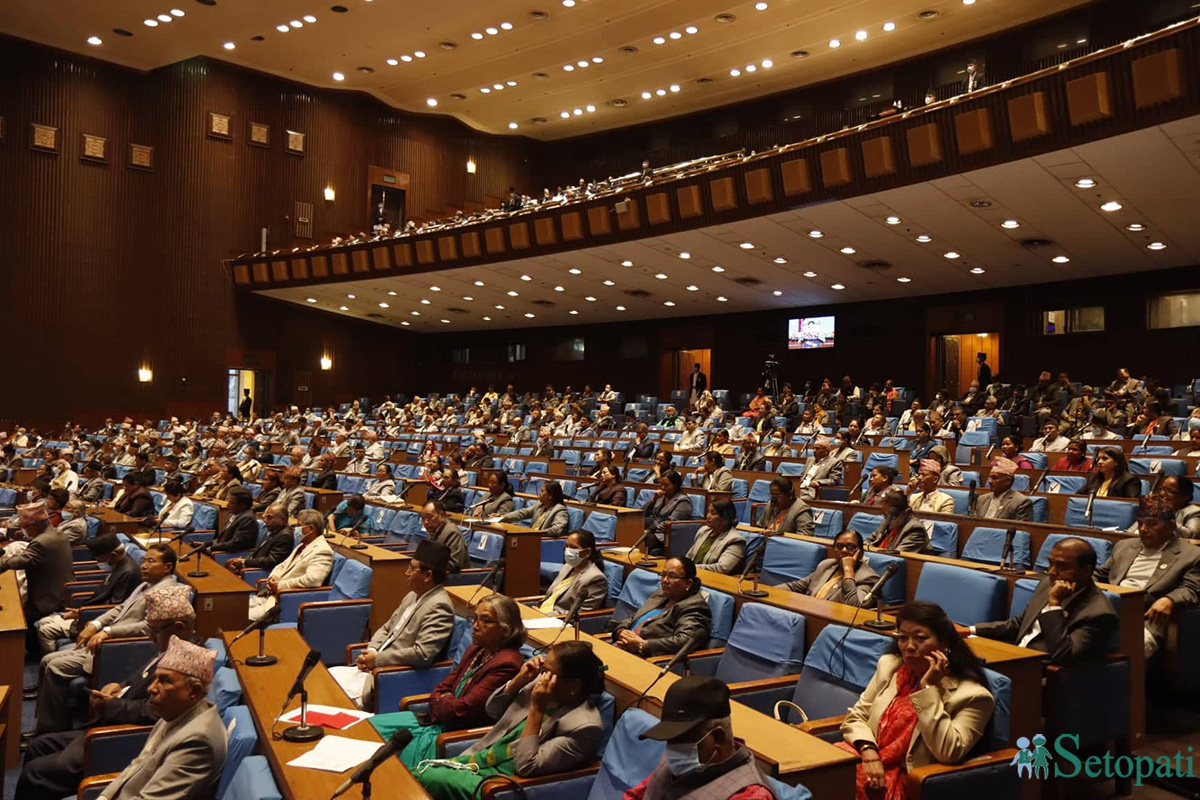Political parties are submitting closed lists of candidates for the proportional representation (PR) electoral system on Monday.
A total of 275 members are elected to the House of Representatives (HoR), of which 110 are elected through the PR system.
However, a majority of candidates in such closed lists submitted by the political parties for PR election are women.
There are fewer candidates in the first-past-the-past (FPTP) electoral system, so the number of elected women is also small. As the parties field few women candidates under FPTP, they pick mostly women for the PR election to ensure 33 percent representation of women.
For instance, only six women were elected through FPTP in 2017 whereas 159 men won the election. To fulfill the required percentage of women, 84 women were elected to the HoR through the PR system while only 26 men were picked.
Parties are also constitutionally required to elect 33 percent women, which they do not fulfill under FPTP. So a party that wins a large number of seats under FPTP needs to elect a large number of women through PR too.
When 80 lawmakers from CPN-UML were elected through FPTP in 2017, 78 were men while only two were women. As a result, it elected 37 women and 4 men in the 41 seats it won under PR.
Nepali Congress (NC), the second-largest party, won 23 seats under FPTP. None of the elected candidates were women. The party picked 20 women and 20 men for its 40 PR seats.
As NC won few seats under FPTP, it elected mostly men to the HoR as it only met the 33-percent quota of women lawmakers in the party.
CPN (Maoist Center) won 36 FPTP seats, among which 33 were men and three were women. So the party elected 16 women and 1 man for its 17 PR seats.
No women were elected when Rastriya Janata Party (RJP) Nepal won 11 seats and Federal Socialist Forum (FSF) won 10 seats under FPTP. So, RJP Nepal elected 6 women and FSF elected 5 women and 1 man through PR.
No other party was able to cross the 3-percent threshold under the PR system.
Judging by this, a majority of lawmakers elected under PR are likely to be women if a small number of women win the FPTP election.

